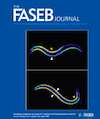Research and treatments
Latest news on clinical and scientific research in endometriosis.
 Behind the headlines: endometriosis and ovarian cancer
Behind the headlines: endometriosis and ovarian cancer
What are the facts behind the headlines about endometriosis and risk of ovarian cancer?
 Global study shows the experience of endometriosis is rooted in a person’s genetics
Global study shows the experience of endometriosis is rooted in a person’s genetics
DNA from 60,600 women with endometriosis reveals evidence of shared genetic basis for endo and other causes of pain.
 Inflammation gene may be possible drug target for endometriosis
Inflammation gene may be possible drug target for endometriosis
Researchers have identified a specific gene (NPSR1) that increases risk of suffering pain from endometriosis with a potential new non-hormonal drug target that may lead to improved therapies in endometriosis.
 European Union grants 6 million euros towards endometriosis research
European Union grants 6 million euros towards endometriosis research
Researchers at Aarhus University head up a major international research and innovation project aimed at improving treatment and quality of life of those affected by endometriosis. Machine learning and artificial intelligence will contribute to this!
 Does sun exposure cause endometriosis?
Does sun exposure cause endometriosis?
A history of intense exposure to the sun may increase risk of being diagnosed with endometriosis over time.
 Putting a stop to misconceptions about race and endometriosis
Putting a stop to misconceptions about race and endometriosis
We need to dispel myths that the prevalence of endometriosis differs in women of different racial/ethnic groups.
 Scientists are now closer to understanding pain mechanisms in endometriosis
Scientists are now closer to understanding pain mechanisms in endometriosis
Immune cells called macrophages could play a key role in the generation of pain in endometriosis according to research at University of Warwick and University of Edinburgh.
 Blood test to diagnose endometriosis
Blood test to diagnose endometriosis
A blood test claiming to diagnose endometriosis with a ninety percent accuracy will be launched within a year. But is it all that it is cracked up to be?
 Diagnostic biomarkers for endometriosis
Diagnostic biomarkers for endometriosis
Development of low-invasive tests/biomarkers for endometriosis remains a high priority in improving the diagnosis, management, and prognosis (progression/regression) of endometriosis. To date there are no reliable / validated tests.
 Endometriosis and hysterectomy
Endometriosis and hysterectomy
Hysterectomy does not guarantee a relief from endometriosis-related symptoms and can neither be classified as a “treatment”, nor as a “cure” for endometriosis; it may relieve co-existing adenomyosis.






